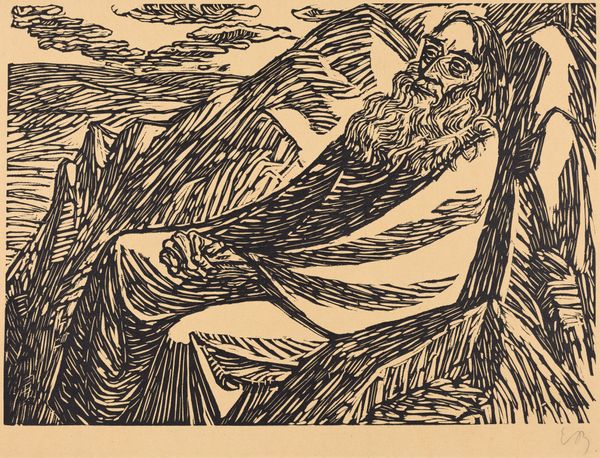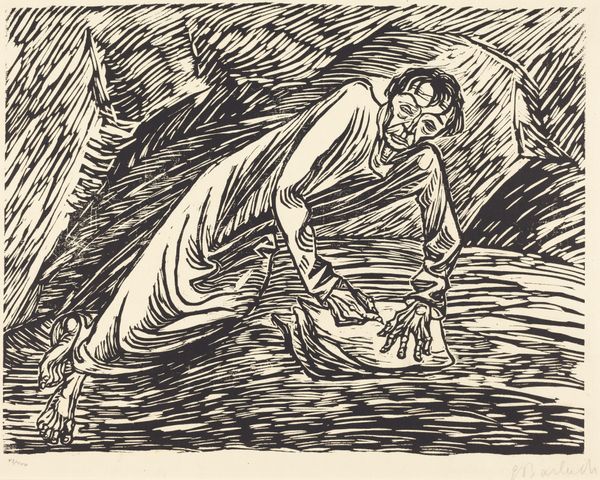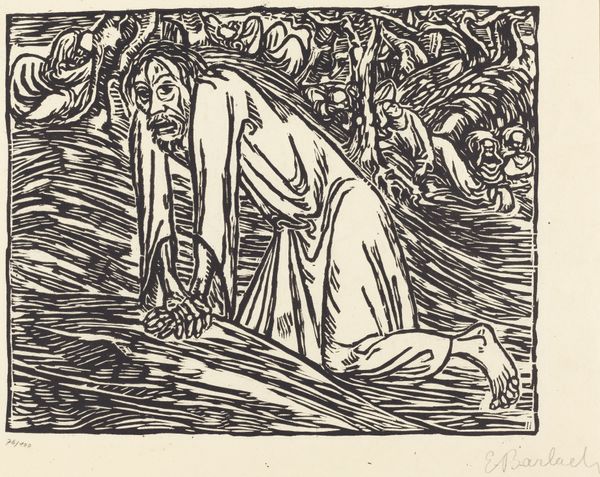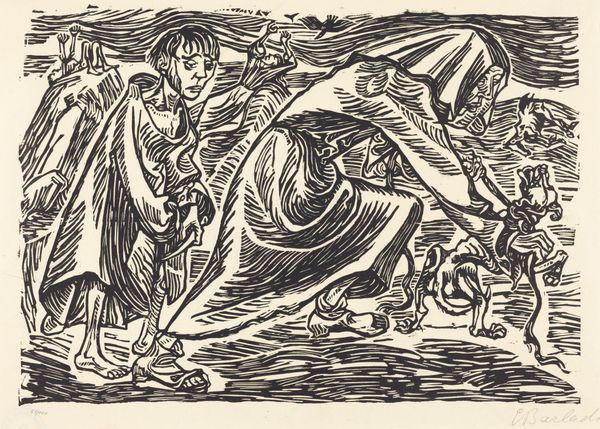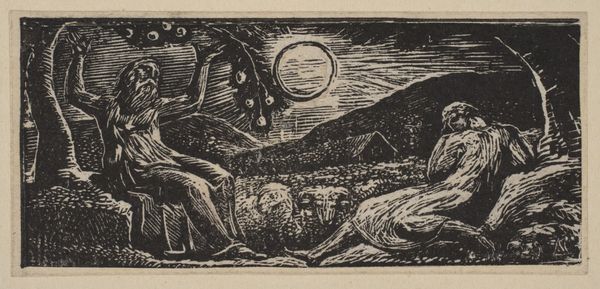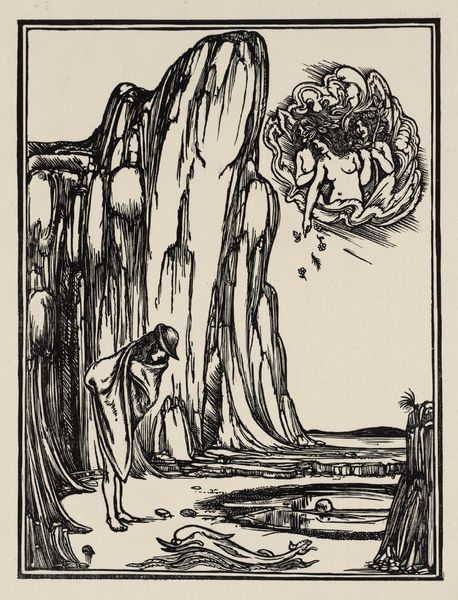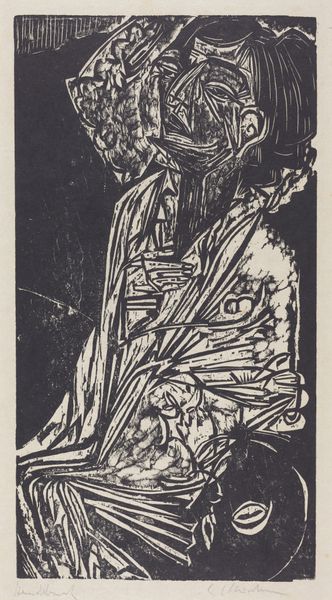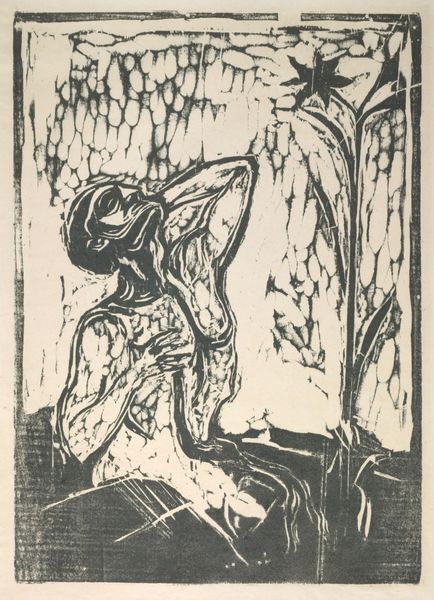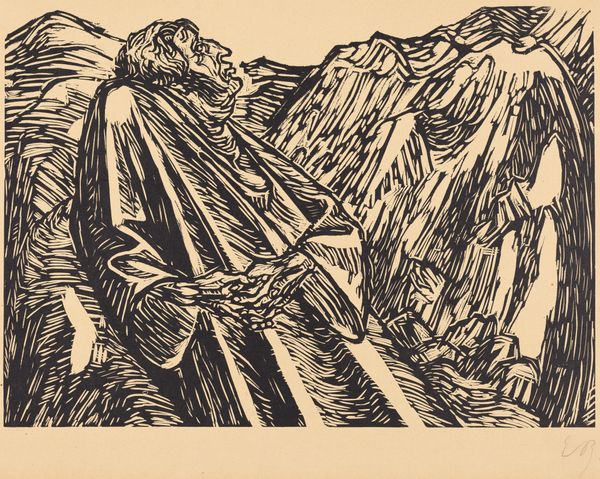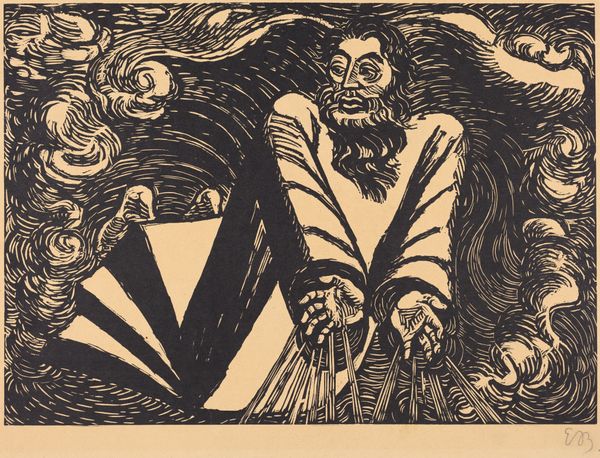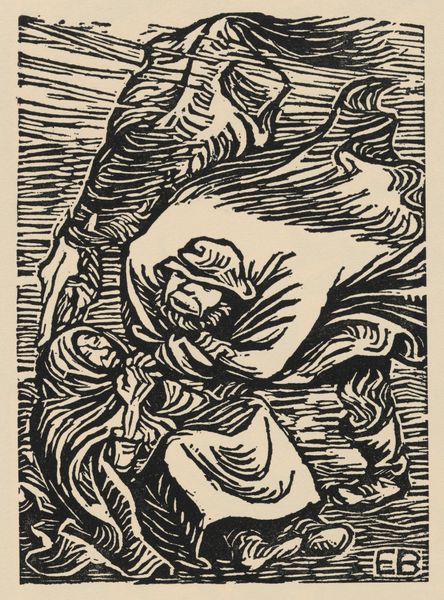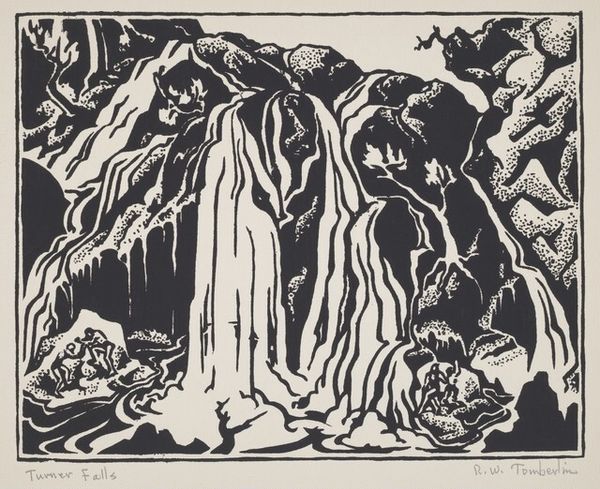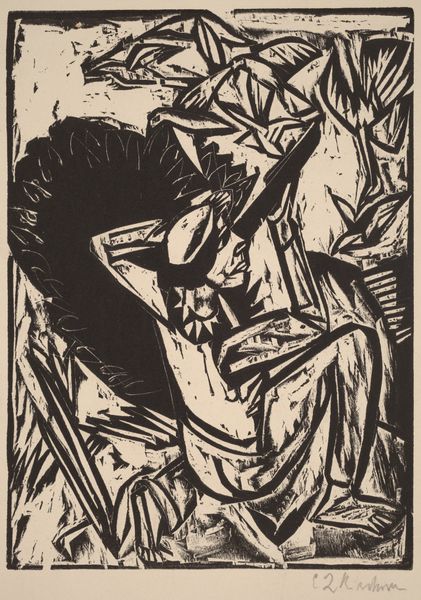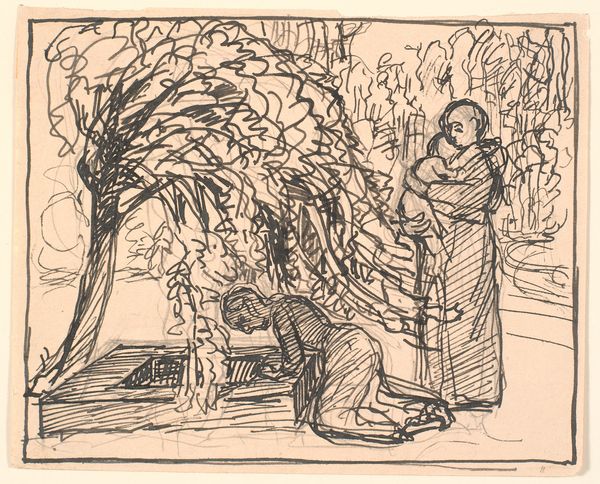
print, woodcut
#
narrative-art
# print
#
figuration
#
expressionism
#
woodcut
#
line
Dimensions: image: 25.5 x 35.8 cm (10 1/16 x 14 1/8 in.)
Copyright: National Gallery of Art: CC0 1.0
Ernst Barlach created this woodcut, "The Divine Beggar," expressing the trauma of his time. This stark image links personal suffering with broader social commentary, reflecting Germany's turbulent early 20th century. Barlach uses the woodcut medium's strong contrasts to highlight the figure of a Christ-like beggar, set against a backdrop of suffering humanity. The angular lines and rough texture mirror the harsh realities of poverty, war, and social upheaval that defined the Weimar Republic. Barlach, associated with Expressionism, critiques institutional failures through the religious motif, questioning the role of the church and state in addressing human suffering. To fully understand this work, we can delve into the social history of post-World War One Germany. Examining contemporary political tracts, religious debates, and artistic movements will reveal the depth of Barlach's critique. Ultimately, "The Divine Beggar" serves as a powerful reminder of art's capacity to challenge prevailing social norms and provoke critical reflection.
Comments
No comments
Be the first to comment and join the conversation on the ultimate creative platform.
